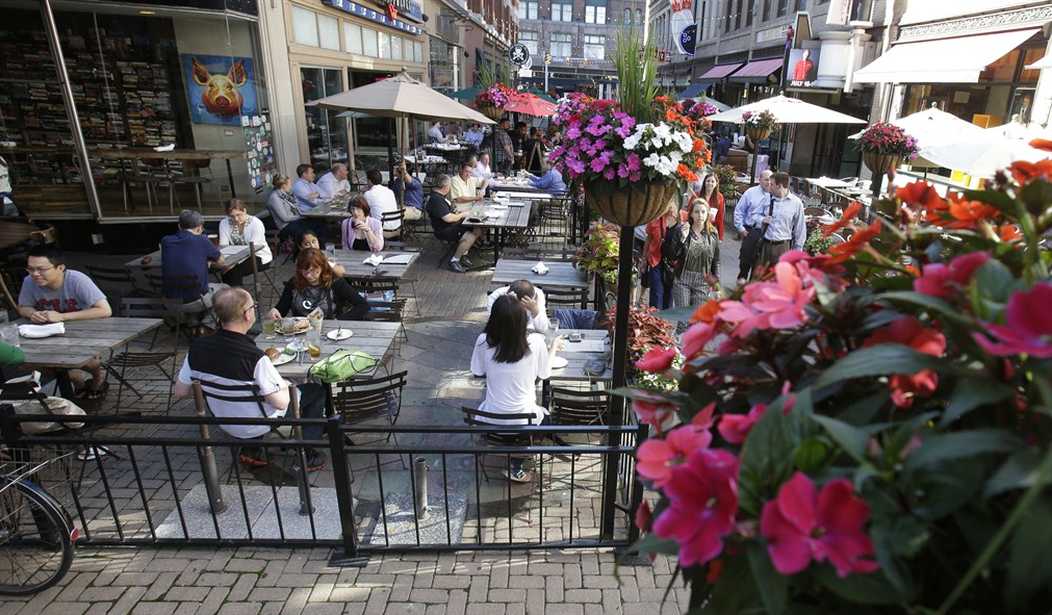When the pandemic arrived and social distancing became mandatory, San Francisco was one of many cities that promoted outdoor dining facilities so that restaurants could continue to serve customers without violating those rules. They changed their zoning laws to allow eateries to construct what came to be known as “parklets.” These are small, partially enclosed spaces with tables and chairs where diners can attempt to enjoy their meal out on the street. That worked well enough that even when some of the restrictions began to be relaxed, owners were clamoring to keep the parklets in place. The city agreed and made the changes to their code permanent.
Or so the restaurant owners thought, anyway. The celebrations were short-lived. The owners have recently been learning the hard way that the regulations for the use of parklets have changed significantly and the vast majority of them are no longer in compliance. Code enforcement officers have been visiting them and informing them they will have to make extensive (and expensive) changes to the facilities or face increasing daily fines. At this point, many of the owners are ready to throw up their hands and just tear them down. The communications from the city government on this matter have been so bad that most businesses don’t even understand what they are supposed to do. (San Francisco Chronicle)
Laurie Thomas, executive director of city trade group Golden Gate Restaurant Association, estimates that as many as 90% of parklets will need to be removed or significantly changed to meet the guidelines, which span more than 60 pages. Though restaurants have a June 30, 2022, deadline to come up to code, many businesses are already being warned that they will be assessed hefty fines if they don’t make these changes within weeks.
Supervisor Aaron Peskin said he’s been hearing from panicked restaurateurs in Chinatown and North Beach for weeks, some of whom are getting notices that conflict with each other. Owners tell him they are confused and struggling to get clear answers.
“It’s the most uncoordinated, messed up, insulting display of government incompetence,” said Peskin, who’s said he is planning new legislation in hopes of temporarily stopping fines. “It’s breathtaking.”
It would be nice to simply write all of this off to bureaucratic incompetence, but this situation is such a complete mess that it almost has to be intentional on some level. Many businesses spent upwards of $50,000 constructing their parklets and their customers seem to enjoy them. They were able to operate them for more than a year in some cases without hearing a peep out of the codes officers.
Now that’s changed. When the city first authorized the establishment of parklets they issued a booklet of rules regulating their construction that was just seven pages long. A new rule book has shown up, however, and it’s more than sixty pages long. The dizzying list of requirements and inspections has left some owners with no clear path toward being in compliance. One restaurant association estimates that up to 90% of existing parklets are now out of compliance and will either need to be torn down or undergo expensive alterations to make them legal.
The enforcement question also looks extremely fishy. The new rules claim that owners have until the end of June next year to come into compliance. But codes officers are already coming around and issuing warnings that fines may begin in a matter of weeks. It’s somewhat ironic that the original revisions to the code allowing the parklets were intended to help the businesses remain open. Now, however, the city is using the same tools to threaten to put some of them out of business or at least cause them to incur further financial hardship.
Mayor London Breed’s office claimed that they “sought input” from business owners and they are currently working on ways to delay implementation and fines. There were also grants set up to help pay for required renovations. But listening to the business owners interviewed for this report, it doesn’t sound like there was much communication taking place. And one owner called the grants “a joke” compared to the amount of money it will cost to do the renovations.
This isn’t a small deal. The name of the program that made the parklets possible is “Shared Spaces,” and they say there are 1,000 eateries with permits under that program in operation. If 90% of them are out of compliance, that’s going to amount to roughly 900 businesses. Some of the owners are already saying that if they lose their outdoor dining options they will need to lay off workers or possibly even close entirely. This incredible display of bureaucratic meddling and buffoonery is pretty bad even by San Francisco standards.







Join the conversation as a VIP Member